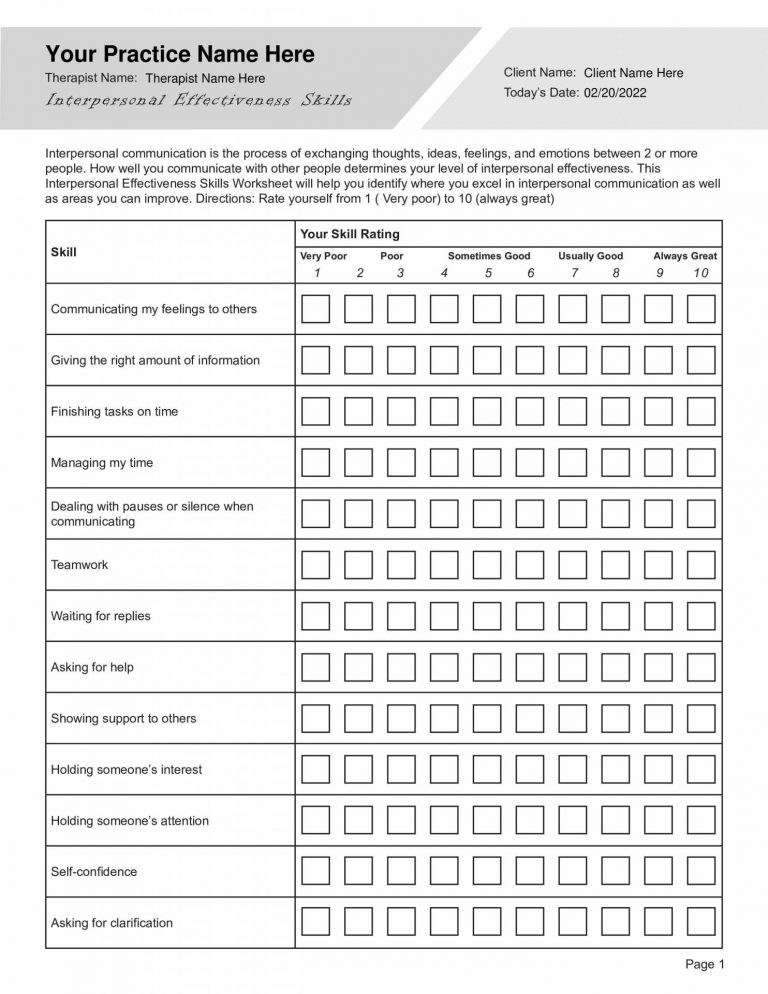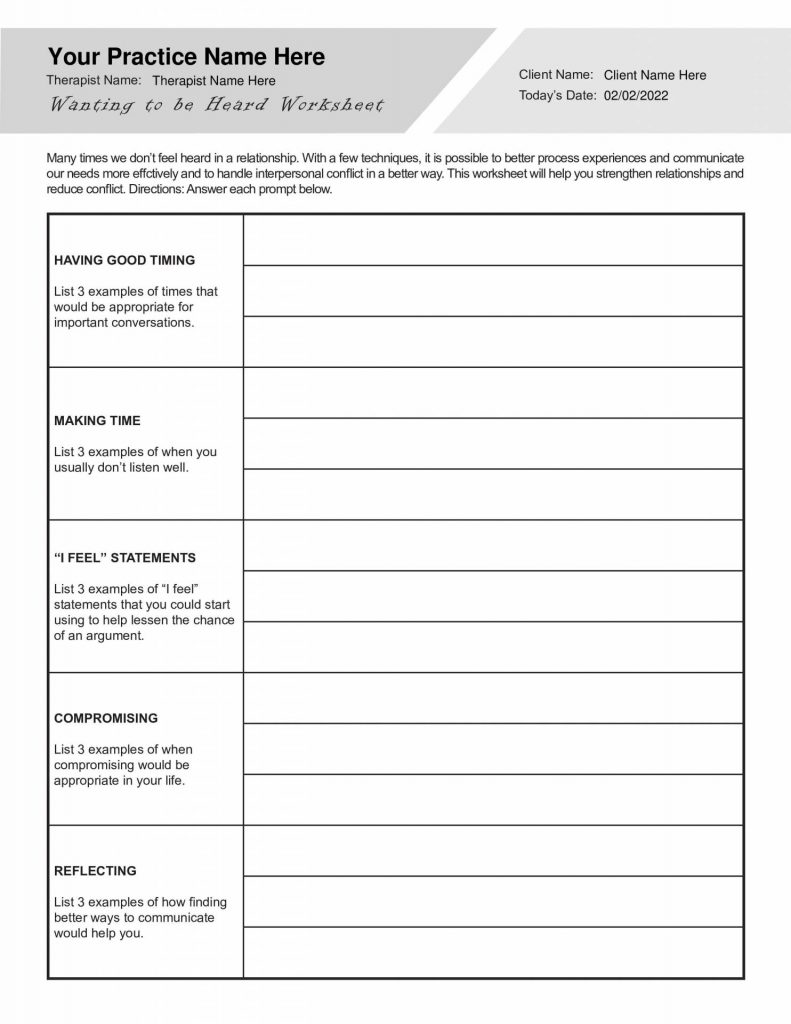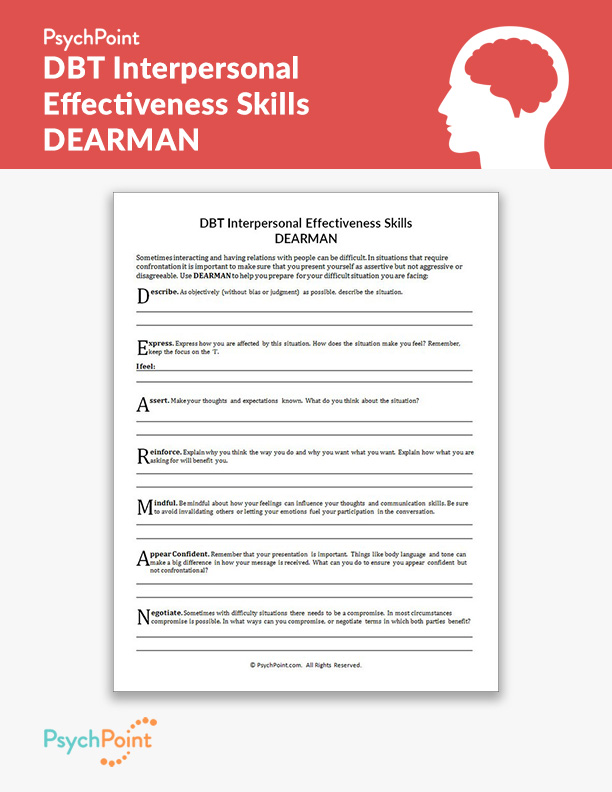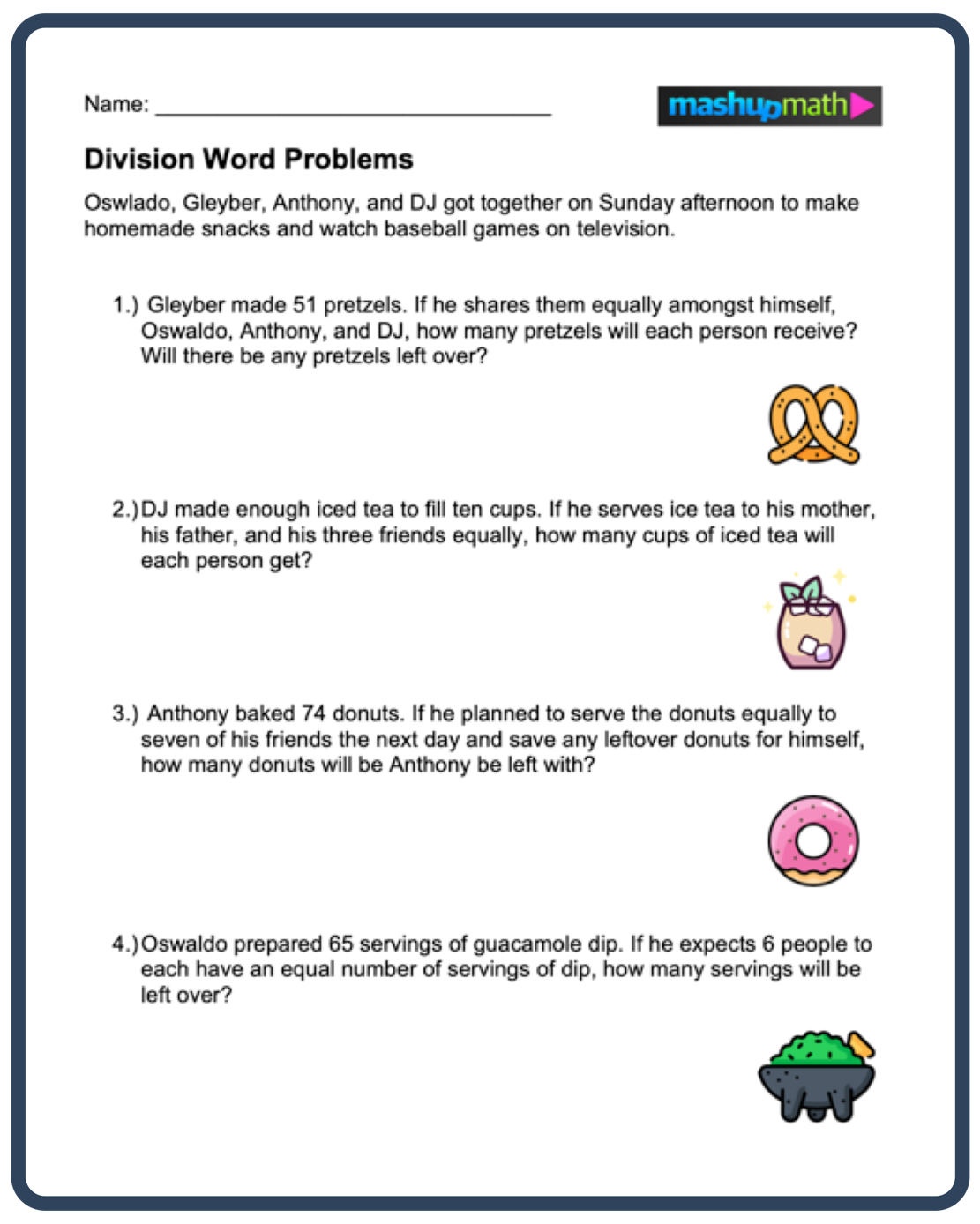Master Dialectical Behavior Therapy with Interpersonal Effectiveness Worksheets

Understanding Interpersonal Effectiveness in DBT

Interpersonal effectiveness is one of the four primary skills modules in Dialectical Behavior Therapy (DBT), alongside mindfulness, emotion regulation, and distress tolerance. At its core, interpersonal effectiveness refers to the ability to interact with others in a manner that is assertive, yet not aggressive or passive, allowing for clear communication of needs and wants while maintaining respect for others and oneself. This module aims to help individuals navigate complex social interactions, assert themselves, and build healthier relationships.
Why Interpersonal Effectiveness is Crucial

- Improved Communication: Interpersonal effectiveness skills enhance your ability to communicate your thoughts, feelings, and boundaries effectively.
- Conflict Resolution: Learning these skills helps you manage and resolve conflicts in a constructive manner, leading to stronger relationships.
- Self-Respect: By asserting yourself in a balanced way, you maintain or increase your self-respect, which is vital for personal growth and mental health.
- Building Relationships: These skills foster trust and mutual respect, which are key elements in building and sustaining meaningful connections with others.
Interpersonal effectiveness is not just about getting what you want; it's about negotiating solutions where both parties feel satisfied and respected.
Key Components of Interpersonal Effectiveness

The skills within this module are designed to address various facets of interaction:
- Objectiveness: This skill helps you stay focused on your objectives during interactions, helping you achieve your goals without being overly influenced by emotions.
- Relationship Effectiveness: Focuses on behaviors that maintain or improve relationships through actions like expressing gratitude, listening actively, and showing empathy.
- Self-respect Effectiveness: Ensures that your interactions reflect your values and self-worth, allowing you to balance your needs with those of others.
Using Interpersonal Effectiveness Worksheets

Worksheets serve as practical tools to help individuals practice and internalize the interpersonal effectiveness skills learned in DBT. Here's how you can effectively use these worksheets:
DEAR MAN Skill

DEAR MAN is an acronym that stands for Describe, Express, Assert, Reinforce, Mindfully stay, Appear confident, and Negotiate:
| Acronym | Meaning |
|---|---|
| D | Describe: Clearly describe the situation or the problem you want to address. |
| E | Express: Share your feelings and thoughts about the situation without blame. |
| A | Assert: Assertively request what you need or would like. |
| R | Reinforce: Explain the positive consequences if the request is met or negative if not. |
| M | Mindfully stay: Focus on what you want and avoid distractions. |
| A | Appear confident: Use a steady voice, good eye contact, and confident body language. |
| N | Negotiate: Be willing to compromise or negotiate if your initial request is denied. |

Using a DEAR MAN worksheet helps you systematically approach a conflict or a request in a structured way. Here’s how to use it:
- Fill Out the Worksheet: Write down the situation, your emotions, what you specifically want, and the possible consequences and alternatives. This exercise helps in clarifying your objectives.
- Role-Play: With someone trusted, role-play the scenario, focusing on using the DEAR MAN skills. This practice solidifies your ability to apply these skills in real life.
- Review Outcomes: After an interaction, reflect on the outcome using the worksheet to assess what worked well and what needs improvement.
📝 Note: Using worksheets to practice these skills can be very effective in a safe environment before real-world application.
GIVE Skill

GIVE stands for Gentle, Interested, Validate, and Easy manner:
| Acronym | Meaning |
|---|---|
| G | Gentle: Use words that are not harsh or blaming, focusing on kindness. |
| I | Interested: Show genuine interest in the other person's perspective. |
| V | Validate: Recognize the feelings, beliefs, or thoughts of the other person. |
| E | Easy Manner: Maintain a light-hearted, easy-going manner to de-escalate tension. |
This worksheet guides you in how to engage with others in a way that fosters positive interactions:
- Before Interaction: Review the GIVE acronym, considering how you can apply each component in your upcoming conversation.
- During Interaction: Use the worksheet as a mental checklist to guide your behavior, aiming for empathy and validation.
- Post-Interaction Reflection: Reflect on your conversation, using the worksheet to evaluate the effectiveness of your interpersonal approach.
📝 Note: The GIVE skill worksheet can help build emotional connections by ensuring respect and understanding are at the forefront of interactions.
FAST Skill

FAST stands for Fair, no Apologies, Stick to values, and be Truthful:
| Acronym | Meaning |
|---|---|
| F | Fair: Be fair in your dealings and negotiations. |
| A | No Apologies: Avoid unnecessary apologies that can lessen your assertiveness. |
| S | Stick to Values: Act in accordance with your core values. |
| T | Be Truthful: Communicate honestly, avoiding exaggeration or lies. |
This skill is vital for maintaining personal integrity during social interactions:
- Before: Review your values and align your objectives with them.
- During: Use the FAST worksheet to remind you to stay true to yourself and act with fairness.
- After: Evaluate how well you maintained your principles through the worksheet.
📝 Note: The FAST skill helps ensure that you do not compromise your principles or identity in social interactions.
The Value of Worksheets in DBT Practice

Interpersonal effectiveness worksheets provide a structured format to help individuals:
- Clarify their goals and objectives in social situations.
- Reflect on past interactions, improving self-awareness.
- Practice necessary skills through role-playing.
- Develop a blueprint for future interactions that aligns with DBT principles.
By using these tools, individuals can enhance their ability to:
- Understand and manage their emotions during interactions.
- Respond thoughtfully rather than react impulsively.
- Assert themselves effectively without causing harm to relationships.
In summary, mastering interpersonal effectiveness through DBT not only improves your communication skills but also enhances your capacity for emotional intelligence, boundary-setting, and relationship management. These worksheets act as your personal coaches, guiding you through the nuances of social engagement with a focus on both achieving your objectives and maintaining self-respect. They encourage a thoughtful approach to communication that benefits all parties involved. Understanding and practicing these skills can transform your relationships, paving the way for a more assertive, balanced, and respectful interaction style in all areas of life.
What is the purpose of the DEAR MAN worksheet?

+
The DEAR MAN worksheet is designed to help individuals systematically approach interpersonal conflicts or requests, focusing on clear communication of needs and wants in a way that respects both parties involved.
Can interpersonal effectiveness skills help with workplace dynamics?

+
Absolutely. Skills like DEAR MAN, GIVE, and FAST can enhance assertiveness, team cohesion, and reduce workplace conflicts, leading to a more productive and positive work environment.
How frequently should one practice using interpersonal effectiveness worksheets?

+
Practicing regularly, perhaps weekly or in response to specific situations, can help solidify these skills. The key is consistent practice and reflection on real-life interactions.



